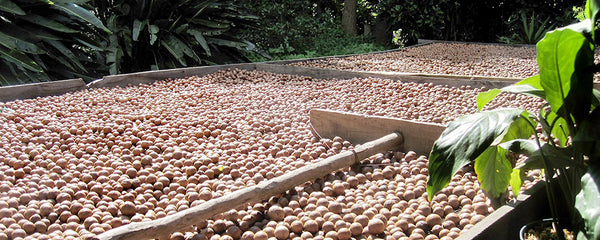The Importance of Pollination

Pollination is a vital process in the plant world that ensures the reproduction and survival of many plant species. It involves the transfer of pollen from the male part of a flower to the female part, leading to the formation of seeds and fruits. While there are various methods of pollination, one of the most important and efficient ways is through the help of bees and other pollinators.
Why do we need pollination?
Pollination is essential for the diversity and abundance of plant life on Earth. It plays a crucial role in the reproduction of flowering plants, which make up the majority of plant species. Without pollination, these plants would not be able to produce seeds or fruits, leading to their eventual decline and extinction.
Pollination also contributes to the overall health of ecosystems. It allows for the transfer of genetic material between plants, promoting genetic diversity and resilience. This diversity is important for the adaptation and survival of plant species in changing environmental conditions.
Where do bees and other pollinators come into play?
Bees and other pollinators, such as butterflies, birds, and bats, are crucial for effective pollination. They have co-evolved with flowering plants, forming a mutually beneficial relationship. As they collect nectar from flowers, they inadvertently pick up pollen on their bodies and transfer it to other flowers as they move around.
Bees, in particular, are highly efficient pollinators. They have specialized body structures, such as hairy legs and bodies, that allow them to carry large amounts of pollen. Additionally, their foraging behavior and ability to navigate long distances make them effective in pollinating a wide range of plant species.
However, bees and other pollinators are facing numerous challenges that threaten their populations. Habitat loss, pesticide use, climate change, and diseases are all contributing factors to their decline. This decline in pollinators has serious implications for the health and sustainability of ecosystems and agricultural systems.
What can we do to support pollinators?
There are several actions individuals and communities can take to support pollinators:
1. Plant pollinator-friendly gardens: Choose a variety of flowering plants that provide nectar and pollen throughout the year. Native plants are particularly beneficial as they have co-evolved with local pollinators.
2. Avoid or minimize pesticide use: Pesticides can be harmful to pollinators. Opt for organic or natural pest control methods and use pesticides sparingly and responsibly.
3. Provide nesting sites: Create habitats for pollinators by providing nesting sites such as bee hotels, butterfly houses, or leaving dead wood and leaf litter in your garden.
4. Support local beekeepers: Buy honey and other bee-related products from local beekeepers who practice sustainable beekeeping methods.
5. Spread awareness: Educate others about the importance of pollinators and the actions they can take to support them. Encourage schools, community organizations, and policymakers to implement pollinator-friendly initiatives.
By taking these steps, we can all contribute to the conservation and protection of pollinators, ensuring the continued pollination of plants and the preservation of our natural world.
